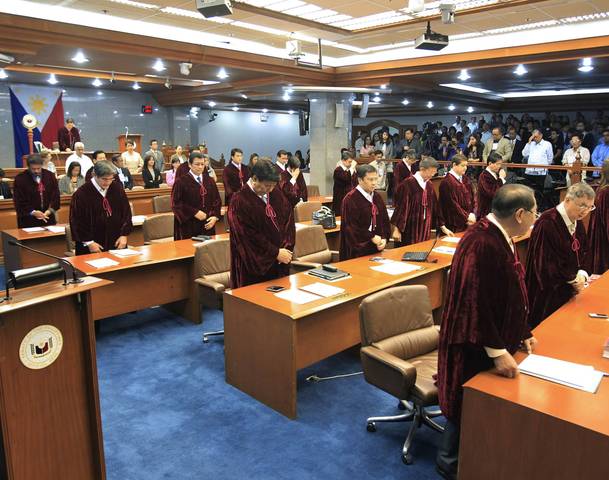
MANILA – Senators have expressed dismay over low transmission rate of the election data in 2013 as compared to the country’s first automated elections in 2010, as they called for 100 percent accuracy in the transmission for the 2016 polls.
During a public hearing by the joint congressional oversight committee on the automated election system on Thursday, Senator Aquilino Pimentel III said the Commission on Elections (Comelec) should aspire for error-free transmission to make sure that votes will be counted 100 percent even at the transparency level.
Pimentel noted that the rate of successful transmission of the data in 2010 elections from the precinct count optical scan (PCOS) machines to transparency server in Manila was 90.35 percent but reduced to only 76.35 percent in 2013.
”If the transparency server received only 76 percent of the results, are we happy? Or we shouldn’t be happy because it will not serve its purpose,” Pimentel asked Comelec chairman Sixto Brillantes.
”Of course, we’re not very happy,” Brillantes replied.
With this, Pimentel urged the Comelec chief to designate as system to achieve 100 percent accuracy in the transmission of the election data.
Brillantes, however, assured that the official result was 100 percent based on the contingency measure the Comelec used in transmitting the data from the PCOS direct to the Municipal Board of Canvassers (MBOC).
”We brought the compact flash (CF) cards containing the votes directly to the MBOC. So the official count is always 100 percent complete and encoded in the MBOC,” Brillantes explained.
Senator Paolo Benigno Aquino IV said the Comelec should address the 24 percent unsuccessful transmission of the election data.
”If only 76 percent was transmitted, then there was a failure of transmission somewhere,” Aquino said.
During the hearing, Aquino also urged the Comelec to look into possibility of using write once, read many (WORM) cards instead of an ordinary CF card to make sure that the votes will not tampered by unscrupulous individuals.
”Maybe Mr. Chairman, we can consider that (WORM) card since it would not require to change the hardware (PCOS),” Aquino said.
Nelson Celis, spokesperson of the Automated Elections Watch, said the CF cards used in the country’s first two computerized elections were rewritable and therefore, can be tampered.
Meanwhile, Pimentel said the case of Eddie Villanueva who ran but lost in the 2013 senatorial race filed before the Regional Trial Court of Gapan in Nueva Ecija can be used on how to improve the automated election in the country.
In one precinct in Gapan, PCOS results showed Villanueva getting only 278 votes but in actual physical recount, he garnered 379 or a difference of 101 votes.
During the joint congressional hearing, the Comelec conducted another recount and it revealed 278 votes from PCOS and 366 from the actual physical count.
”We will get to the bottom of this case. This was brought to national attention that there was a big discrepancy in the vote of 101 votes and reduced to 88 votes but it remains big and alarming,” Pimentel said.
”That is precisely what we are going to explain, how come the physical counting of ballots does not match the digital count of the machines,” he added.
Aquino has moved to invite representatives from Smartmatic, the company that handled the 2010 and 2013 automated polls.